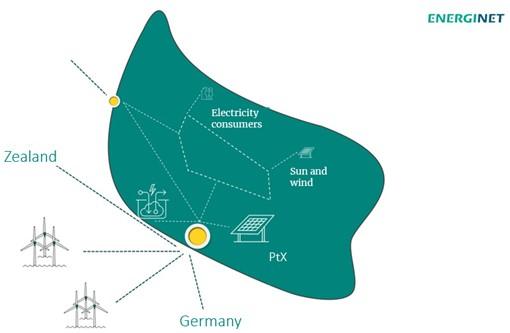General – Energy Island
RTE international France has been entrusted with the modelling and simulation requirements and the specifications to de-risk the multi-vendor multi-terminal HVDC functionalities for the Danish Bornholm Energy Island project.

RTEi is capitalising on its experience in de-risking multi-vendor HVDC projects and enabling the grid integration of offshore wind in order to assist Energinet with the Bornholm Energy Island project, which has the potential to be one of the first Multi-terminal Multi-vendor HVDC systems in Europe.
Once again, RTEi is at the forefront of pioneering and innovative HVDC projects focusing on the European energy transition. In terms of a renewable energy and hybrid interconnector project, Bornholm Energy Island (BEI) is the first of its kind.
Planned by the Danish TSO, Energinet, and the German TSO, 50Hertz, and it will be set up in the Baltic Sea by 2030.
As a first step, BEI will consist of offshore wind farms (with a total of 3 GW offshore wind capacity) located in Rønne Banke, connected to the AC substation at Bornholm Island.
Additionally, HVDC interconnectors running from Bornholm will connect to Zealand (Denmark) and Germany, and potentially to more countries in the future.
The BEI project has the potential to become the first multi-vendor multi-terminal DC link to be operational in Europe. The project includes options for parallel operation on the AC, or multiterminal connection on the DC side.
RTEi has been contracted as a third-party consultant to perform gap analysis of Energinet’s existing project specifications and to adapt them accordingly for the Bornholm Island Energy project. The key deliverables of this project are intended for use by Energinet directly in the tendering process for developing the BEI project.
“The challenges of this complex and innovative project lie in the need for detailed and thorough specifications in multiple aspects of system development, which will play a key role in maximizing the interoperability of an integrated system of multi-vendor, multi-terminal, and multi-stakeholder HVDC-connected OWPPs. In order to establish these specifications and criteria, one should be adequately informed of the state-of-the-art technological development in HVDC power system engineering, electromagnetic transients (EMT) modelling and simulation, as well as supporting multi-vendor interoperability studies,” says Pierre Rault HVDC Power Systems Expert.
